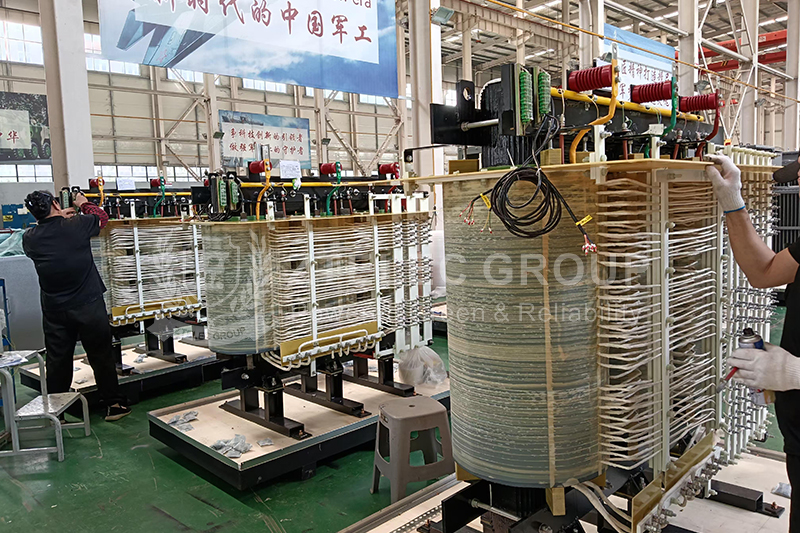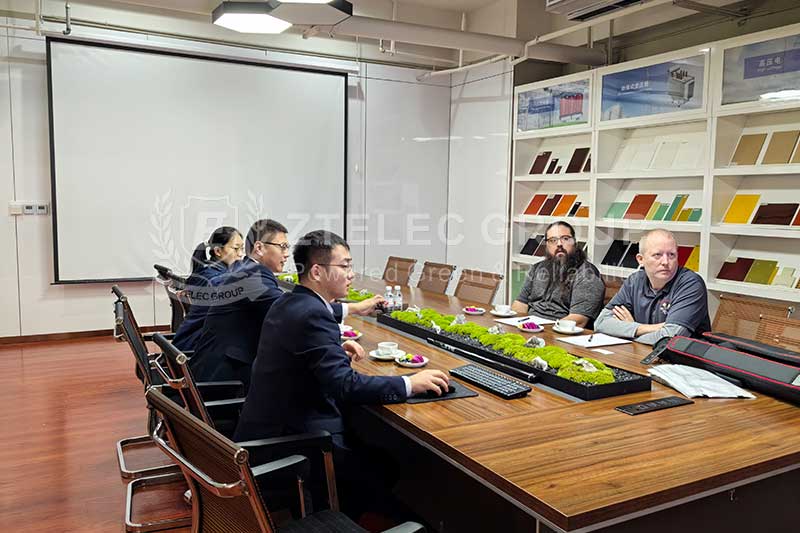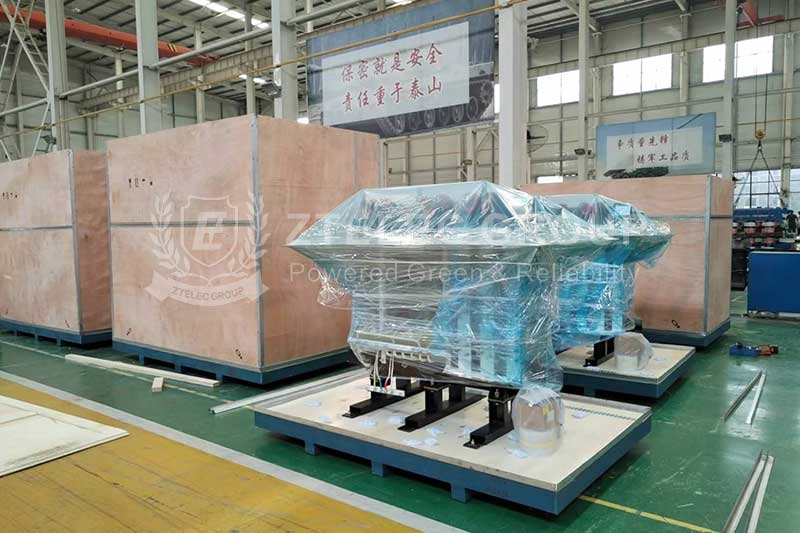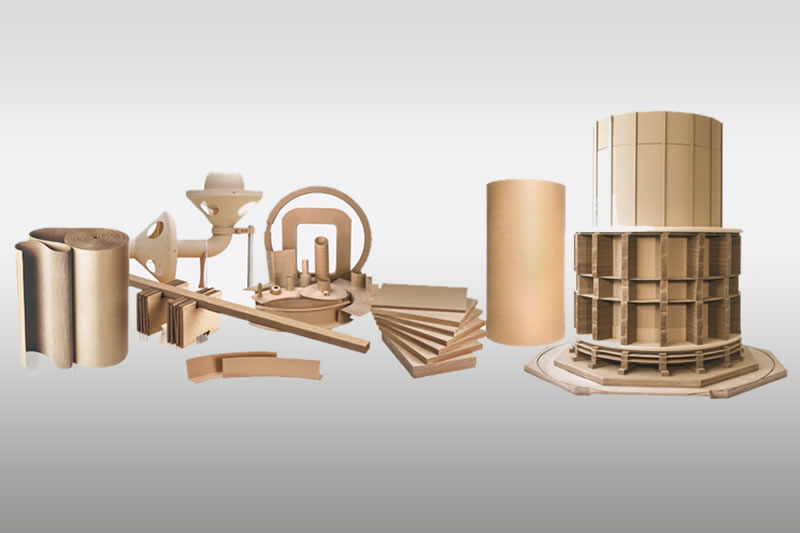FRP copper foil composite tube
In the field of industrial manufacturing, FRP copper foil composite tube has become an ideal choice for many industries due to its unique material composition and performance advantages. This tube is mainly composed of high-quality glass fiber yarn or tape, epoxy resin and other materials. Among them, glass fiber is used as a reinforcing material to give the pipe excellent strength and rigidity; epoxy resin acts as a matrix material to firmly bond the glass fiber to ensure the stability of the overall structure.
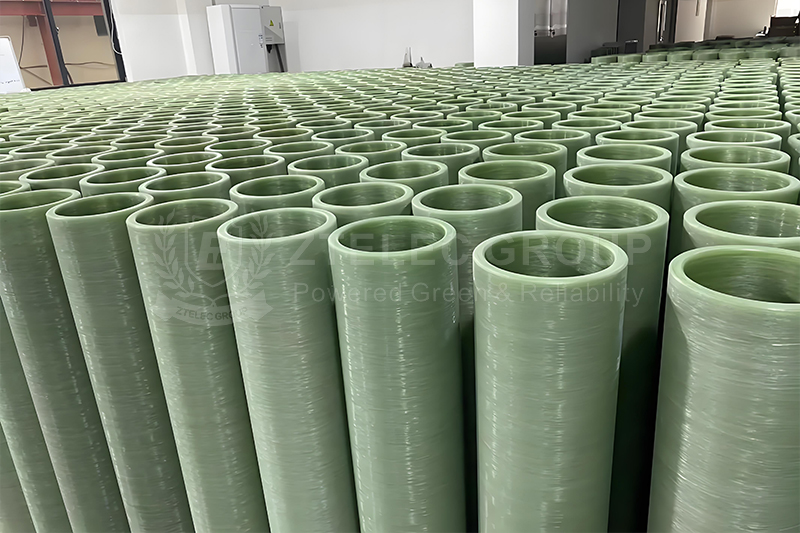
Core performance advantages of FRP tube
High dimensional accuracy
FRP copper foil composite tube has extremely high dimensional accuracy, excellent roundness and straightness, and a smooth and flat surface. This feature greatly improves the use efficiency of the film, effectively reduces material loss caused by surface roughness, and brings significant benefits to the production process.
High strength and rigidity
Through scientific and reasonable material selection and hierarchical design, the FRP copper foil tube exhibits strong strength and rigidity in both the axial and circumferential directions. Even if it bears a large weight, it can maintain a good shape and is not easy to deform, providing reliable support for carrying heavy objects.
Strong corrosion resistance
FRP materials themselves have good corrosion resistance and can effectively resist the erosion of chemical substances such as acids and alkalis. This enables the FRP copper foil tube to maintain stable performance in a complex chemical environment and greatly extend its service life.
Good repairability
When the outer layer of the tube is damaged, the repairability advantage of the FRP copper foil composite tube is reflected. Its repair process is relatively simple and can quickly restore performance, thereby further extending the overall service life and reducing the cost of use.
High heat resistance
The temperature resistance grade of this tube reaches H level and has a high heat deformation temperature. This feature enables it to work stably in high temperature environment and is not easy to damage, which is suitable for workplaces with high temperature requirements.
Strong insulation performance
With its excellent insulation performance, FRP copper foil tube also has a wide range of applications in the electrical field, especially in dry-type transformers. It provides a guarantee for the safe operation of electrical equipment.
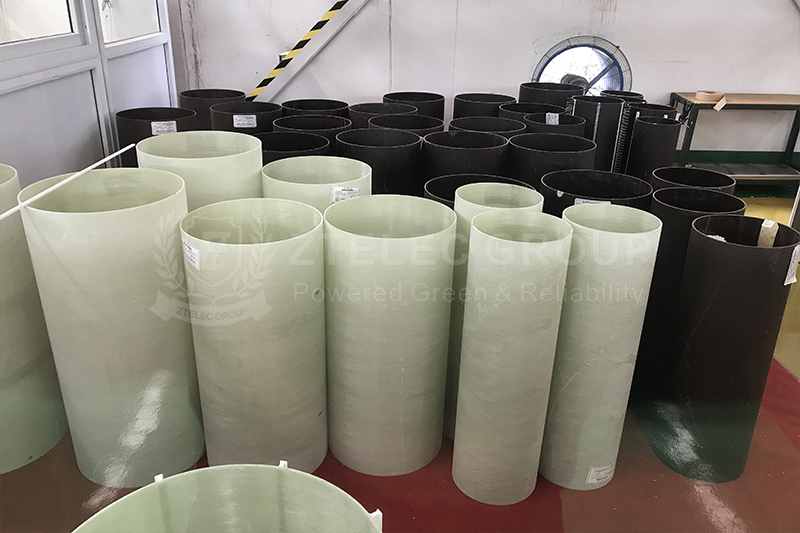
Wide application scenarios of FRP tube
The diverse performance of FRP copper foil composite tube enables it to play an important role in many key fields:
· Electronic industry: FRP copper foil composite tube is often used to roll conductive materials such as copper foil and aluminum foil, providing basic material support for the manufacture of electronic components. It is an indispensable part of the production of the electronic industry.
· New energy field: In the manufacturing process of new energy products such as lithium batteries and solar cells, FRP copper foil composite tube undertakes the important task of rolling up key materials such as diaphragms and copper foils, helping the development of the new energy industry.
· Aerospace field: Due to its light weight and high strength, it has broad application prospects in the aerospace field. FRP copper foil composite tube can be used to manufacture lightweight, high-strength conductive structural parts to meet the stringent requirements of aerospace equipment for materials.
Production process
1. Material preparation stage
The first step in producing FRP copper foil tube is raw material preparation. High-quality glass fiber yarn or tape, as well as epoxy resin and other materials are key. Glass fiber, as a reinforcing material, lays the foundation for the strength and rigidity of the tube; epoxy resin, as a matrix material, realizes the bonding and fixation of glass fiber.
2. Winding molding process
After the materials are ready, they enter the winding molding stage. The glass fiber yarn or tape pre-impregnated with resin is precisely wound on the core mold according to the pre-designed winding rules. The shape and size of the core mold determine the inner diameter and shape of the final product. In this process, it is crucial to strictly control the fiber tension and winding angle to ensure that the pipeline layers are tightly bonded and the overall structure is uniform and stable.
3. Curing process
After winding, the pipe needs to be cured. Place the tube in a heating device and heat and cure it under specific temperature and pressure conditions. The precise control of curing time and temperature directly affects the mechanical properties and corrosion resistance of the tube. After curing, the glass fiber and resin form a strong chemical bond, giving the tube excellent comprehensive performance.
4. Quality inspection and subsequent processing
The cured tube needs to undergo a strict quality inspection process, including appearance inspection, dimension measurement, pressure testing and other inspection items to ensure that the product quality meets relevant standards and customer requirements. The tubes that pass the inspection will be cut into fixed lengths or customized according to needs, and finally packaged and shipped to customers for use.
- more+releated article
- 2026-01-04Common Power Transformer Faults: Causes, Solut
- 2025-12-312026 New Year Holiday Notice
- 2025-12-31Operation, Maintenance, and Service Life Manag
- 2025-12-30How to Select a 100 kVA–500 kVA Distribution
- 2025-12-29The Impact of NHN NMN Composite Insulation on
- 2025-12-26Practical Application of GPO-3 Insulation Boar
- 2025-12-2510kV Transformer Replacement Timeline: Install
- 2025-12-25Low Smoke EN45545 GPO3 UPGM203 Laminated Board
- 2025-12-24Merry Christmas — ZTelecgroup Christmas Cele
- 2025-12-24How to Select a Suitable 50kVA–500kVA Distri

